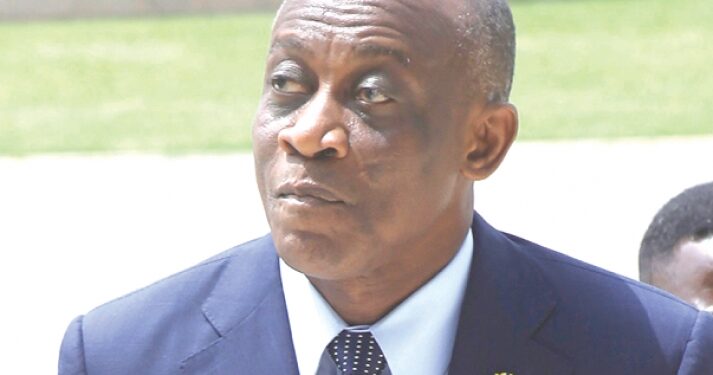NDC undertook deep revenue and expenditure reforms in 2016 election year – Terkper says
We left $250m in the Ghana Infrastructure Fund, we didn’t touch ESLA to try to use it during the election year as ESLA was to bring in GHS 66bn by 2026, then there is the Sinking Fund which we also left for the current administration,”
- Advertisement -
Former Finance Minister, Seth Terkper, says the erstwhile Mahama administration embarked on deep revenue and expenditure reforms during the government’s time under an IMF programme, notably in the 2016 election year.
According to the former Finance Minister, the deep revenue and expenditure reforms undertaken by the Mahama-led administration even during an election year resulted in a low fiscal deficit of 6.3% as against a fiscal deficit of 7% and a debt-to-GDP ratio of 57%.
- Advertisement -
This he noted, compares favourably to the now over 10% fiscal deficit and 100% debt-to-GDP ratio of the incumbent NPP administration although under an IMF programme.
- Advertisement -
Making the assertion during an interview on Joy New’s PM Express monitored by norvanreports, Mr Terkper averred that it was due to the reforms and fiscal discipline undertaken by the Mahama administration that led to the creation of buffers for the country.
“The decision for the IMF programme to extend into an election year was made by former President Mahama, because he wanted to show that even during an election year we can maintain our fiscal discipline.
“As a government, we had deep revenue and expenditure reforms that helped us to maintain low fiscal deficit of 6.3% which was within the 7% target and debt-to-GDP ratio of 57% unlike this government’s 10.3% fiscal deficit and 100% debt-to-GDP ratio.
- Advertisement -
“What we did was deep structural reforms and fiscal discipline and that’s how come we left buffers. We left $250m in the Ghana Infrastructure Fund, we didn’t touch ESLA to try to use it during the election year as ESLA was to bring in GHS 66bn by 2026, then there is the Sinking Fund which we also left for the current administration,” he posited.
Mr Terkper made the above assertions speaking on the topic, “The Election Year Economy: Prospects and the IMF Question.”
Ghana is known to usually overspend during electioneering years resulting in major fiscal slippages.
This is even after the country has made significant strides in fiscal consolidation and revenue enhancement in the years prior to the election year.
- Advertisement -


